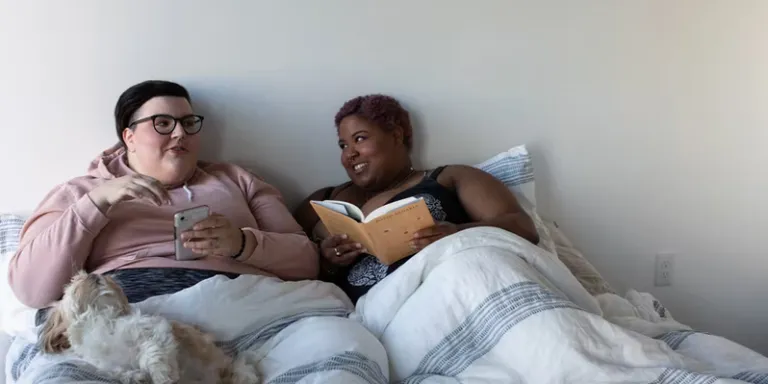
Most people, when asked, would say that trust is important to them in a relationship. Some of us think about it primarily in terms of fidelity. But many of us have different ideas when it comes to what 'trust' actually means.
For some people, 'trust' means knowing someone will never let you down and that they'll always put you first. For others, it means being honest with someone and not keeping any secrets. Some people would say trust is something more intangible - a more general understanding between two people of having similar boundaries or values.
The components of trust
There are some key indicators that most people would agree as evidence of trust:
Reliability
How much faith we feel we can put in someone to keep their promises can be a big part of how much we trust them. Promises can be about big things - wedding vows, for instance - or even small things like saying you'll mow the lawn.
Predictability
Although it's not always necessarily seen as a good thing, how predictable someone is can have a big influence on how much we trust them. Knowing they'll act consistently from one situation to the next helps us feel they won't let us down out of the blue.
Honesty
Most people would agree that an ability to tell the truth is important to relationships. Lying and dishonesty undermine the very essence of trust.
Loyalty
Being able to stick with people through difficult times can be a very important part of building trust. Most of us would agree we need to stay constant to our partners through the good times and bad.
Commitment
Commitment is usually important if trust is to grow. It's hard to have faith in someone who is vague about what they expect from the future of a relationship.
Shared boundaries
Making sure our partner understands our ideas on privacy and space can be an important part of maintaining trust. If you're assuming it's okay to flirt with other people but your partner believes the opposite and neither is aware of the other's opinion, it's likely there's going to be conflict at some point.
Conflict over trust
Sometimes, couples come unstuck because their ideas on trust don't match up. One person might feel that it's the most important thing in a relationship, whereas the other might see it as fairly important, but no moreso than other things like mutual attraction, shared interests and so on. Not communicating about having different ideas on trust can create difficulties in the future - especially if one partner perceives trust to have been broken. When trust is broken in one component it can impact on others. So if our partner is found to be dis-honest or unpredictable it can undermine our safety within the relationship leading us to checking out the other aspects. Obviously that can lead to unhappiness all round. It’s that feeling of being unsafe that can trigger us on a primal level and why for some it can have such a big impact. On others, less so.
Understanding both your and your partners ideas about this is a crucial part of maintaining a happy, communicative relationship. If you think you might need some help, why not take our trust quiz? It will ask you a series of questions about your attitude towards trust and how you would react in certain situations.
How we can help
If you’re looking for support with your relationships, we can help. We offer a range of ways to speak with a trained relationship expert including ongoing counselling, 30 minute web and phone chats, and one session therapy.
Find out which service is right for you
How you can help
Have you found this advice helpful? Make a donation to help us reach more people and continue supporting the nation’s relationships:
Can't afford to donate? We understand. Instead, we ask that you leave us a 5 star review on Trustpilot.